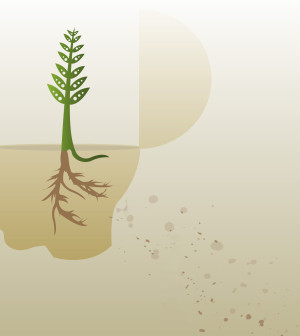- 10 Strategies to Overcome Insomnia
- Could Artificial Sweeteners Be Aging the Brain Faster?
- Techniques for Soothing Your Nervous System
- Does the Water in Your House Smell Funny? Here’s Why
- Can a Daily Dose of Apple Cider Vinegar Actually Aid Weight Loss?
- 6 Health Beverages That Can Actually Spike Your Blood Sugar
- Treatment Options for Social Anxiety Disorder
- Understanding the Connection Between Anxiety and Depression
- How Daily Prunes Can Influence Cholesterol and Inflammation
- When to Take B12 for Better Absorption and Energy
Weight, Exercise May Affect Children’s Thinking Skills

Children’s weight and physical activity levels may affect their thinking and learning skills, a new study suggests.
Researchers studied 45 normal-weight children, aged 7 to 11; 24 of them were active and the rest were not. Children were considered active if they took part in organized activities, such as swimming, gymnastics, soccer or dance for more than an hour a week.
The study also included 45 overweight and inactive children.
As expected, active, normal-weight kids had less body fat and a lower resting heart rate than overweight, inactive children. But the researchers also found that normal-weight active children did better on tests of mental skills — such as planning and paying attention — than their inactive counterparts.
The findings were published online recently in the journal Pediatric Exercise Science.
While the study found an association between physical activity and mental skills in children, it did not find a cause-and-effect relationship.
“Activity made a difference even among normal-weight kids. That verifies that physical activity makes a difference in brain function,” study author Catherine Davis, a clinical health psychologist at the Medical College of Georgia, in Augusta, said in a college news release.
The good news is that children — with the help of families and schools — can boost their physical activity levels, she added.
“If they can cut some of the empty calories out of their diet and pick up the pace on physical activity, they may grow into their weight,” Davis said.
In addition, Davis pointed out that the study focused on weight, but it is likely more accurate to look at the amount of body fat in children. For example, overweight kids in the study had more fat, rather than weighing more because of extra muscle mass.
The investigators suggested that future studies should also include overweight, active children to see if they also gain mental benefits from physical activity, and to learn more about how weight and exercise relate to kids’ brain health.
More information
The U.S. Centers for Disease Control and Prevention outlines how much physical activity children require.
Source: HealthDay
Copyright © 2026 HealthDay. All rights reserved.










